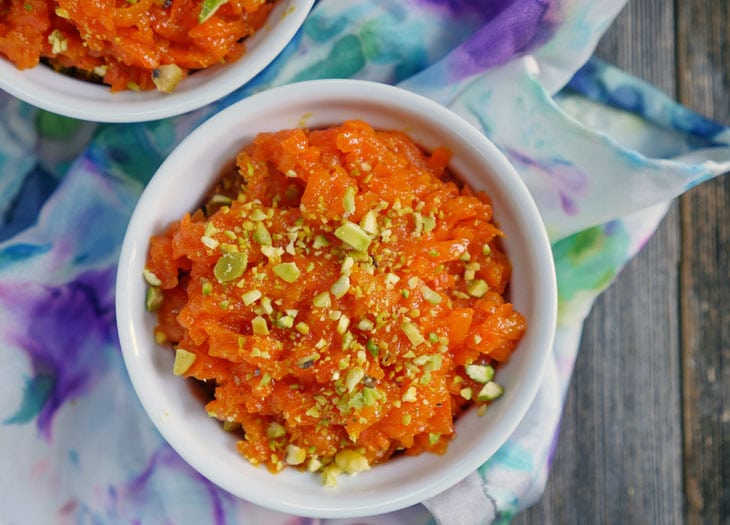
Carrot Halwa
Ingredients (1 cup = 250 ml) 8 to 9 medium tender juicy carrots or 650 grams (gajar) – yields approx 4 to 4.5 cups grated carrots 4 cups full fat organic milk 4 tablespoons ghee (clarified butter) 10 to 12 tablespoons regular sugar or organic unrefined cane sugar OR 180 to 190 grams sugar – add as required 5 to 6 green cardamom (chotielaichi) – powdered finely in a mortar-pestle or about ⅓ […]
- Description
Description
Ingredients (1 cup = 250 ml)
- 8 to 9 medium tender juicy carrots or 650 grams (gajar) – yields approx 4 to 4.5 cups grated carrots
- 4 cups full fat organic milk
- 4 tablespoons ghee (clarified butter)
- 10 to 12 tablespoons regular sugar or organic unrefined cane sugar OR 180 to 190 grams sugar – add as required
- 5 to 6 green cardamom (chotielaichi) – powdered finely in a mortar-pestle or about ⅓ to 1 teaspoon cardamom powder
- 10 to 12 whole cashews (kaju) – chopped
- 10 to 12 almonds – sliced or chopped
- 2 tablespoons golden raisins (kishmish)
- 1 pinch saffron strands (kesar) – optional
How to make
first rinse, peel and then grate the carrots (8-9 medium sized tender juicy carrots), either with a hand held grater or in a food processor.
you need approx 4 to 4.5 cups grated carrots.
- in a kadai or deep thick bottomed pan combine milk and grated carrots.
- on a low to medium flame, bring the whole mixture to a boil and then simmer.
- while the mixture is simmering on a low flame, keep on stirring in between.
- the grated carrots will cook in the milk and the milk will start to reduce and evaporate.
- when the milk has 75% reduced, add the ghee, sugar and powdered cardamom to the mixture.
- stir well and continue to simmer and cook on a low flame.
- do keep on stirring the gajar halwa in between.
towards the end, add the cashews, almonds, saffron and raisins. simmer carrot halwa till all the milk is evaporated. switch off the burner.
serve gajar halwa hot, warm or you can also serve it cold. garnish with some chopped dry fruits while serving.
tips for making carrot halwa
- use fresh, juicy and tender carrots.
- the recipe can be halved or doubled.
- carrot halwa stays good in the fridge for almost about a week.
- use full-fat milk or whole milk.
- add nuts and dry fruits of your choice.
Source:www.vegrecipesofindia.com